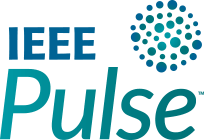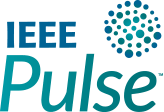Legal Disclaimer
The information provided on this page and in this podcast series does not constitute legal advice. All information is for general informational purposes only and may not constitute the most up-to-date legal or other information. Users are encouraged to contact their attorney to obtain advice with respect to any particular legal matter. Users are not advised to act or refrain from acting on the basis of information found herein without first seeking legal advice from counsel in their jurisdiction. Only your own attorney can provide assurances that the information contained herein is applicable or appropriate to your particular situation. Using the information on this site or listening to this podcast series does not create an attorney-client relationship between the user and the presenters or their law firms. The views expressed herein are those of the individual presenters in their individual capacities only—not those of their firms or IEEE. All liability with respect to actions taken or not taken based on the contents of this webpage and podcast series are hereby expressly disclaimed. The content on this page is provided “as is.” No representations are made that the content is error-free.
Episode One
Is Your Medical Device Idea Worth Pursuing?
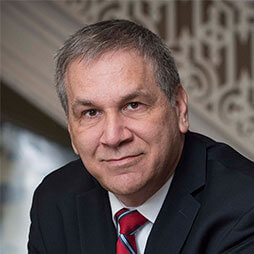
Howard Levin, MD
Howard R. Levin, MD, started his career as an academic cardiologist and researcher and has worked extensively towards the integration of cardiac, respiratory and renal physiological principles into novel clinical treatments; initially at Johns Hopkins, then at Columbia Presbyterian, where he was Medical Director of the Mechanical Cardiac Support Program.
In 2003, with Mark Gelfand, Dr. Levin co-founded Coridea, an idea generator that translates ideas into novel therapeutic solutions for clinical practice. His inventions/co-inventions or patents have helped successfully launch 12 companies and counting. He has held a number of positions in these companies, including President, Chief Scientific Officer, Chief Medical Officer, and VP of R&D.
Dr. Levin also holds a master’s degree in Biomedical Engineering. He is an author of over 80 issued US patents, an additional 100 published patent applications, and 70 medical publications.
Episode Two
Patent Law for Start-Ups
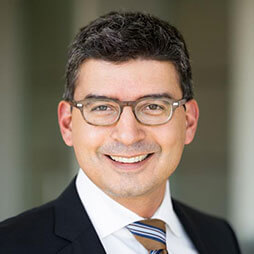
Theodore Papagiannis, JD
Theodore G. Papagiannis is a partner in the Medical Device group at Knobbe Martens, where he guides start-up companies—particularly those in the medical device arena—to build and strengthen their intellectual property (IP) portfolios. He has extensive experience in conducting patent due diligence on behalf of both emerging growth companies and venture capital firms, as well as other investors and strategic partners.
Mr. Papagiannis counsels both start-up companies and investors in patent and trademark portfolio management, licensing, infringement analysis, IP risk evaluation, strategic IP positioning (both offensive and defensive) and a wide range of other IP matters. He is also a licensed professional engineer in California.
Episode Three
Establishing an Academia-Industry Partnership
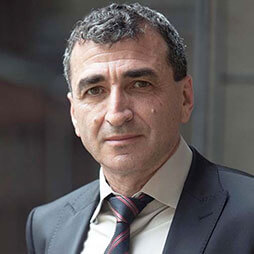
Mark Gelfand
Mark Gelfand has more than 25 years of experience developing medical devices in academic, startup and corporate environments. His expertise is in integrative physiology, systems engineering and intellectual property. With Dr. Levin, he co-founded Axon Therapies, Soffio Medical, Cibiem, CHF Solutions, Ardian and Respicardia and served as the chief technology officer to those ventures.
Mr. Gelfand also worked at Nellcor Puritan Bennett, the world’s leading respiratory device company, where he was responsible for the architecture development of a new ICU ventilator platform. Prior to Nellcor, he was co-founder and chief technology officer of CardioLogic Systems Inc., where he was responsible for the development of the Vest CPR device designed to treat cardiac arrest. The successor to that device is now marketed as AutoPulse® by Zoll Medical.
From 1987 to 1992, Mr. Gelfand was senior research engineer in the division of cardiology at The Johns Hopkins School of Medicine, responsible for the development of several concept-level medical devices.
Mr. Gelfand is an author and co-author of more than 100 issued U.S. patents in the fields of heart failure, resuscitation, sleep apnea and dialysis. He holds master’s degrees in electrical engineering from St. Petersburg Institute of Technology and received graduate-level training in physiology at The Johns Hopkins School of Medicine.
Mr. Gelfand is an adjunct associate professor of biomedical engineering at Columbia University, lecturers and mentors students at Mount Sinai and Johns Hopkins Medical Schools and serves on the External Advisory Board of the Johns Hopkins University Center for Bioengineering Innovation & Design.
Episode Four
The Key Steps to Successful IP Filings
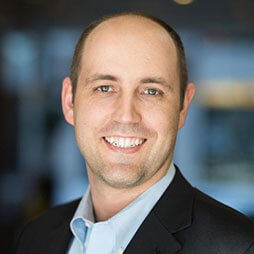
Michael R. Christensen, JD
Michael R. Christensen is a partner in the Medical Device group at Knobbe Martens. While he has helped clients protect a variety of technologies, the majority of his practice focuses on protecting innovation and building patent portfolios for startup medical device clients. The technologies of some representative clients include MRI-compatible infusion pumps and novel devices and therapies for the treatment of stroke, diabetes, atrial fibrillation and back pain.
Mr. Christensen also has extensive experience conducting patent due diligence for leading Venture Capital firms and performing IP audits for companies seeking to identify ways to improve their patent portfolios. One of Mr. Christensen’s areas of expertise is developing strategies for expediting patent prosecution, both in the United States and abroad.
In his presentation, Michael will review the key steps to successful IP filings, reviewing provisional patents, utility patents, the Patent Cooperation Treaty (PCT), and Fast Track US filings.
Episode Five
Technology Transfer
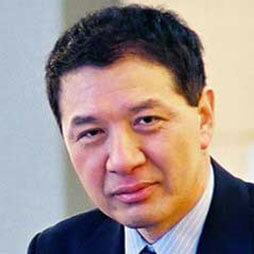
Yongmin Kim, Ph.D.
Dr. Yongmin Kim spent 29 years at the University of Washington in Seattle before becoming President of Pohang University of Science and Technology (POSTECH) in Korea in 2011. Currently, he is Past President and Professor in the Department of Creative IT Engineering at POSTECH.
His research interests include medical imaging and computing, ultrasound systems, distributed diagnosis and home healthcare, and computer architecture, leading to more than 450 research publications. Dr. Kim and his research group are responsible for 85 inventions and counting, 70 patents, and the transfer of technologies to industry via 27 licenses. He has also helped to commercialize these technologies.
Dr. Kim received the IEEE EMBS Early Career Achievement Award and IEEE EMBS Distinguished Service Award in 1988 and 2010, respectively. In 2011, he received the IEEE EMBS William J. Morlock Award. In 2012, he was selected as the University of Washington Medicine Inventor of the Year.
Dr. Kim served as Program Chair of the 1989 IEEE EMBS Conference, Conference Co-Chair of the 2009 IEEE EMBS Conference, and served on the IEEE Fellow Committee from 1998 to 2001 and on the IEEE EMBS Administrative Committee for many years. He was the IEEE EMBS President for 2005 and 2006.
Dr. Kim is a Fellow of the IEEE, American Institute for Medical and Biological Engineering, and International Academy for Medical and Biological Engineering. He earned a BS degree in electronics engineering from Seoul National University and his MS and PhD degrees in electrical engineering from the University of Wisconsin.
Workshop Organizers
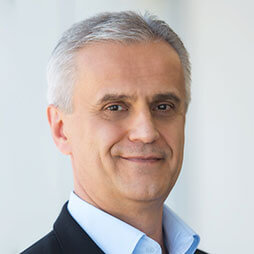
Dorin Panescu, Ph.D., FIEEE
Dorin Panescu is Chief Technical Officer and Vice President, R&D, with Axon Therapies, Inc., Santa Clara, California. His research interests focus on devices for ablation, pacing, defibrillation, diagnosis and therapy delivery. Previously, Dr. Panescu held R&D leadership positions at Advanced Cardiac Therapeutics, Inc., Intuitive Surgical, Inc., St. Jude Medical, Inc., and Boston Scientific Corporation.
Dr. Panescu is inventor on over 165 issued US patents. He has co-authored over 200 technical publications. He earned his PhD and MS degrees in Electrical and Computer Engineering from the University of Wisconsin at Madison. He has held various offices with the IEEE EMBS, such as Chair of the Industry Relations Committee and past Chair of the Therapeutic Systems and Technologies Technical Committee. Dr. Panescu is the recipient of the 2002 IEEE EMBS Early Career Achievement Award and the 2009 IEEE EMBS Professional Career Achievement Award. He is a Fellow of the IEEE.
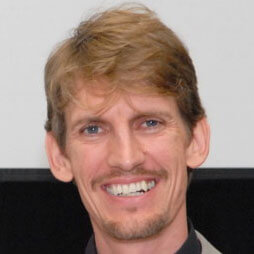
Dieter Haemmerich, Ph.D.
Dieter Haemmerich is Professor of Pediatrics at the Medical University of South Carolina (Charleston, SC, USA), with adjunct appointment in the Department of Bioengineering at Clemson University (Clemson, SC, USA). His current research interests include image-guided drug delivery and image-guided therapies, with specific focus on integrating computational modeling with experimental studies to guide the engineering of better drug delivery systems.
Dr. Haemmerich has co-authored over 100 peer-reviewed journal and conference papers, 6 book chapters, and holds 8 patents. Two of the patents have been licensed by Medtronic, with a commercial device available and clinically used since 2004. Dr. Haemmerich has served as journal reviewer for over 80 scientific journals, is on the Editorial Board of 9 journals, and is Section Editor for the International Journal of Hyperthermia and Thermal Therapies.
Dr. Haemmerich is co-founder and past President of the start-up company, Medical Engineering Innovations Inc., which commercializes surgical devices for cancer treatment. He received his PhD in Biomedical Engineering from the University of Wisconsin-Madison (USA), and his MS degree in Electrical and Computer Engineering from the Vienna University of Technology (Austria). He was Co-Organizer of the IEEE EMBS International Summer School on Computer Modeling in Medicine (2017, 2019).
Brought to you by the IEEE Engineering in Medicine and Biology Society.
